Review for Armchair Theatre: Volume 2
Though drama of this type and era is, for me, synonymous with BBC's 'Play for Today', this set heralds from Thames TV. The idea of 'plays on TV' was an obvious one and heralds from the earliest days of television. Indeed, this show originated in the mid-fifties in various forms, though what we have here, in Volume Two of Network's release of the Thames era material, heralds from the early seventies when the series was spluttering to a close.
There are moments when viewing this set that you'll think that decision an outrageous one, but there are also moments when you too would have been cheering the executioner on. In other words, it's a very mixed bag, more bad than good, but with a couple of gems that arguably will be the worth the price of the set alone.
The set kicks off with:
Wednesday's Child
A doctor takes an attractive nurse into his home to help his wife through her convalescence. The stage looks set for an affair. But events take an unexpected course, and in the end, the doctor's wife has to make a curious choice.
Starring Katharine Blake, Prunella Ransome and Gary Watson
Written by Roger Marshall
Directed by Kim Mills
Original ITV Transmission 10 November 1970
Though it would be four years before the first lesbian kiss on television, there is no doubting the smouldering intent here in what is a sterling performance from the two female principals. Nurse Shirley Marrow (Prunella Ransome) is clearly attracted to the older Doctor's wife (Katherine Blake) though we are never sure that the older woman really knows the truth of the younger girl's affection. This ambiguity is brought to a head when her husband takes a frightening misogynist approach to ridding himself of the 'problem'. It's a strange, slow brewing affair though perfectly absorbing for the duration, if a little depressing. Apparently reprised with Stephanie Beacham in 'Public Eye'.
Competition
'You don't want to believe a word your dad says. Nobody else does.' Young Ray hardly needs the advice. A budding poet, he particularly wants his father to go with him to the poetry competition at school - but father has something else on his mind, and Ray's awakening disillusion is confirmed.
Starring John Thaw, Michael Jayston, Anne Carroll, William Relton and Keith Chegwin
Written by Douglas Livingstone
Directed by Kim Mills
Original ITV Transmission 5 October 1971
The second play on the disc is also rather good - if a little depressing. An unemployed father (Michael Jayston) is set to take his son to a poetry recital, which is son is rather good at. However, it's clear that the father has little appreciation of it, just a reluctant acceptance; a rather obvious device to show an emerging cultural difference between father and son.
To add to the complexity and plot, the dad invites two friends, Tony (John Thaw) and his wife Joyce (Anne Carroll). Tony has just got himself a new job in Birmingham and they are about to move. Rather than feeling jubilant for them, he is jealous of his friend's success, upset at the loss of a couple of pals and - as we discover later - upset that his affair with his friend's wife will soon be over. He invites the couple to accompany him (and his son) to the recital and relationships soon become strained.
A complex and thought provoking piece unfolds - again, somewhat melancholy. And is that young schoolboy really Cheggers?
The Left Overs
Mike comes home to an 'empty' flat and finds a surprise waiting for him in the bath. After a time, he grows used to having his visitor around, but the bachelor flat will never be quite the same again…
Starring Anton Rodgers and Ann Bell
Written by Donald Churchill
Directed by Jonathan Alwyn
Original ITV Transmission 22 August 1972
Almost 'Steptoe and Son' in its two-handed brilliance, this really was the stand-out in the set for me. Both Anton Rogers and Ann Bell are great. Mike Rodgers shares a flat in Soho with a friend (that we only hear about but never see) and one day he comes home to find one his mates girlfriends having a bath. There is a mutual attraction from the off and. Interrupted by phone-calls, the romance develops as a sub-plot develops (involving Mike's expense fiddling) and the two converge in a very satisfying way.
High Summer
An Edwardian high summer wraps Lady Huntercombe's home in a cocoon of peace and quiet. But, on the day of the cricket match, her ladyship's eldest son, Jack, returns from Paris. He then announces that he is back to claim his inheritance.
Starring Roland Culver, Donald Hewlett, Nerys Hughes and Margaret Leighton
Written by Terence Rattigan
Directed by Peter Duguid
Original ITV Transmission 12 September 1972
Apparently this period piece was written as one of three one act plays by Rattigan in 1948 (one of the more popular of the three being 'The Browning Version'). It's all a bit stagey, despite being filmed on location but still reasonably entertaining.
Lady Huntercombe (Margaret Leighton) is visited by her son Jack (Christopher Gable) during a gathering at her estate. Only it transpires that it is no longer her estate - it's her son's. And he's been to Europe to mix with normal folk and has got some socialist attitudes that mean he wants to dispose of the estate in order to spread the wealth. Or to hurt his Mother - or more likely, her lover. Not only that, he' shanging out with one of the Liver Birds! (Nerys Hughes).
The Creditors
Gustave appears to be helping Adolph and Tekla to sort out their tangled marriage. But are his objectives really as uncomplicated as they seem?
Starring Susannah York, Kenneth Haigh and Anthony Higgins
Written by directed by Philip Saville, from an original play by August Strindberg
Original ITV Transmission 10 October 1970
Oh dear!! This really was hard work and an example of a play that is either very dated, highly pretentious or both. Actually - let's settle for both.
Artist Adolph is being manipulated by his wife's ex-lover, Gustav. The wife is played with gusto by Susannah York but she can't save the combination of horrible play and hammy acting from Gustav. Absolute garbage of the very worst order.
The Death of Glory
Billy Turnbull despises his workmates - and is despised by them. In a house run with military precision, he lives with his father, an ex-sergeant major full of tales of past glory; Billy's life is bound up with band practices and dreams of the army he could never hope to join. But are son and father both just dreamers?
Starring Warren Clarke, Bill Maynard, Dandy Nichols, Leslie Schofield and Karl Howman
Written by Robert Holles
Directed by Gareth Davies
Original ITV Transmission 11 September 1973
Another melancholy addition to the set. Starting with some hammy performances from a bunch of quarry workers, it quickly moves on to establish itself as a neat little play. Bill Maynard plays Reg, an old timer who lives through his exaggerated claims of bravado on the battlefield and his military-mad son who would have given his right arm to have served. Maynard if predictably brilliant, and son Billy (Warren Clarke) is very convincing too, running his brass band with military precision.
The Square of Three
Johnny Orange opted for a life in the regular army. He finds himself bored, disillusioned… and happy.
Starring Christopher Beeny, Gordon Jackson, Tony Selby, John Duttine and Anthony Allen
Written by P.J. Hammond
Directed by Derek Bennett
Original ITV Transmission 16 October 1973
Another powerful drama when a young soldier questions his role and the discipline in army life. Gordon Jackson is fabulous as the 'psychiatrist' who partially agrees with young Johnny Orange's objections.
According to the Rules
Chief Inspector Flaherty's integrity is challenged when he and his son come up against blackmail, money and power…
Starring Liam Redmond, Oliver Maguire, Fedelma Cullen and James Berwick
Written by Dominic Behan
Directed by Piers Haggard
Original ITV Transmission 9 July 1974
The final play on the set deals with the 'troubles' via a tale of a bank robbery assumed to have taken place in order to fund the IRA. But this play has as much to do with puncturing pomposity as that, with some wildly humourous moments.
Overall, the set is interesting enough but there is at least one stinker amongst the pack.
Picture quality throughout is very good for vintage TV originally shot on video-tape.
This set will only be available until March 2012 which means its scarcity will inevitably make it highly sought after. If you're thinking of getting it, don't think too long!
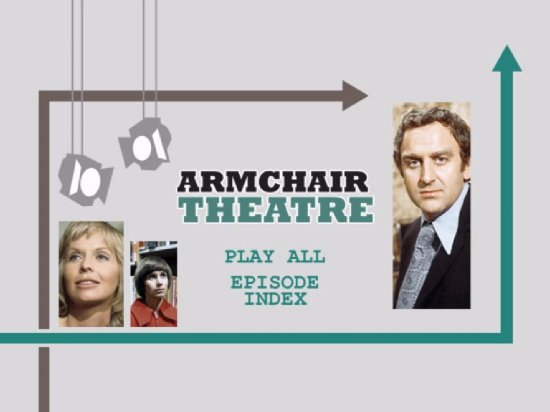
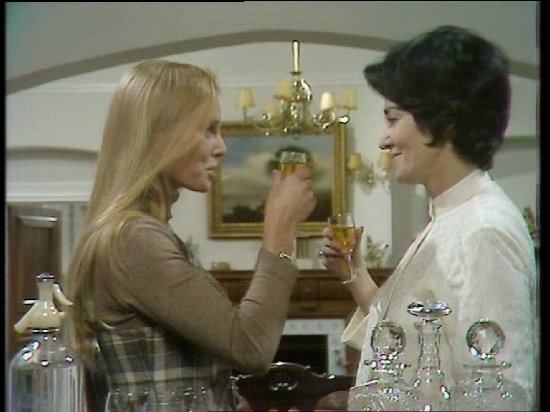
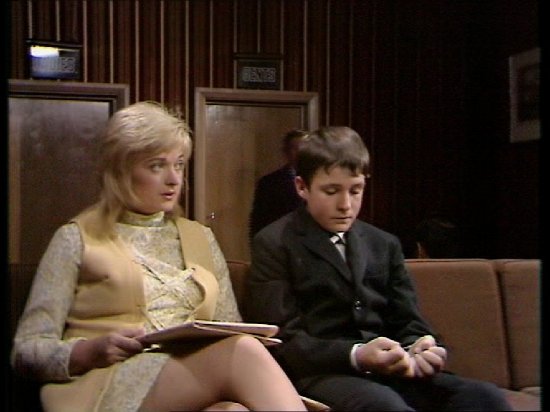
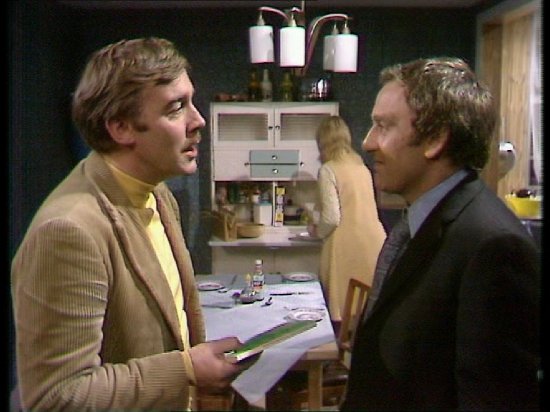
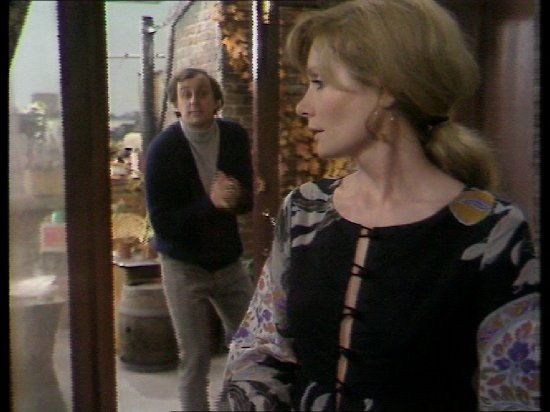
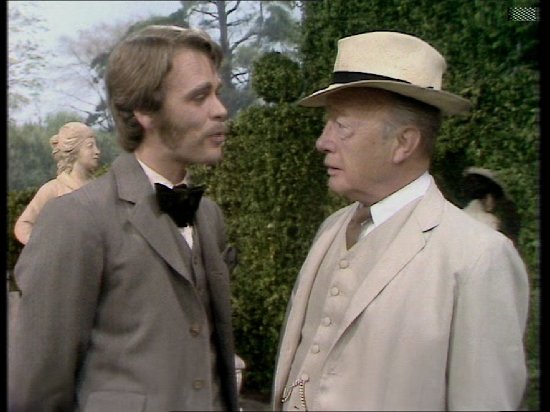
Your Opinions and Comments
Be the first to post a comment!